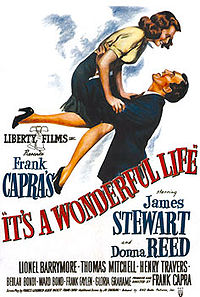
This week I cheerfully lower the tone of Christmas.
When, in a few weeks, I arrive into my hometown after a sweaty four-hour crawl up the highway, I’ll be pulling over in a truck stop, breathing deeply and repeating the following mantra: I aim only for cheer. I will then calmly continue on to Mum and Dad’s and enter the Wilson Christmas Fray. Breathing. Very. Deeply.
Christmas is hard. First, there’s the strobing, jingly, soul-deflating onslaught of crass consumerism from about August onwards. Which we then try to deflect by Focusing on What Really Matters – family, the joy of giving and so on. Which, in turn, serves only to create ridiculously high expectations that come crashing to earth in an argument over who left the skid marks in Dad’s gravel drive. All before Grandma’s first sherry’s poured.
I’m sure families aren’t designed for extended periods of intimacy. But every year, there we go again, piling on top of each other for 48 hours-plus and expecting born-of-a-virgin-like miracles. And we truly test our resolve, don’t we. In my family, all eight of us, and the “extendeds”, converge on the family home, sleeping together on the family room floor and having wrestling matches after too many mince pies. Then someone will raise the existence of God during ping-pong…
But the real pressure kicks in when we overlay all this with an expectation of happiness. “Happy Christmas,” we say. “Happy New Year.” And, “Why aren’t you happy I’ve given you a goat stationed in a small African village instead of the Le Creuset pot you asked for?” We all arrive at Christmas with a sackful of pain – work stress, deep family misgivings, loneliness. This chipper happiness imperative is often too much to bear.
Which is why this year I’m lowering the bar. Buddhism teaches cultivating cheerfulness as opposed to happiness. Happiness is an imposed, lofty ideal. But cheefulness is something you can add to a situation, build up in layers comfortably. You can cheerfully do your best while wearing a silly paper crown and trying to get Uncle Pete to pass the bloody gravy; a Happy Christmas is an unachievable absolute. As the Tibetan monk Rinpoche taught, cheer is inherent in us all and we can choose to turn to it, even in the midst of an all-out festive barney. In choosing to do so, we access our true nature.
And so it will be that when I arrive home next week I will cheerfully decorate the Caltex-issue Christmas tree with paper doily angels and fairy lights. Only to find a bulb’s blown (if this is your festive chore too, you know this means dismantling the lot to find the buggered bulb). And I’ll say, bring it on, when Dad suggests we listen to Holiday Sing-a-long with Mitch Miller, the one with the scratch in it that leaves Dad in hysterics.
It will be with layers of cheer that I cast aside my visceral discomfort with organised religion and go to mass to support Mum. And sing carols out of key. If the God-deluded Richard Dawkins can admit to loving a carol (he says he’s a “cultural Christian”), then I can give everything I’ve got to Silent Night. I’ll play Monopoly with second cousins and I’ll wash up the baking dishes the way Dad likes it done. Cheerfully and with no expectation of being happy about it.
As I’ve contemplated my approach this week, it’s reminded me of the sentimental Christmas classic It’s a Wonderful Life. It’s the anti-capitalist tale of George, a distraught man who feels he was held back from greatness by his family and the narrowness of his hometown. He’s saved from suicide Christmas Eve by his guardian angel who gives him a vision of life if he’d never lived. It’s grim. In that instant George sees his worth and that true meaning is indeed derived from ordinary people and actions. He realises if he ditches expectations, life can be joyous; he chooses to come back to life. Of course this existential angst takes place at Christmas, with family all around, like it does for many of us. At Christmas, families revert to form in a very warts and all way. And so – most cringefully – do we. But Christmas also provides an opportunity to drop expectations, appreciate the sheer lack of pretence only families can provide, and access our true nature that Rinpoche speaks of. Sweetly, and appropriately, the film was originally called The Greatest Gift.
And with that, I wish a cheerful Christmas to you and your family.

